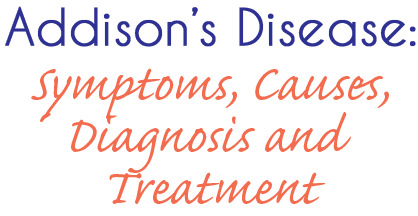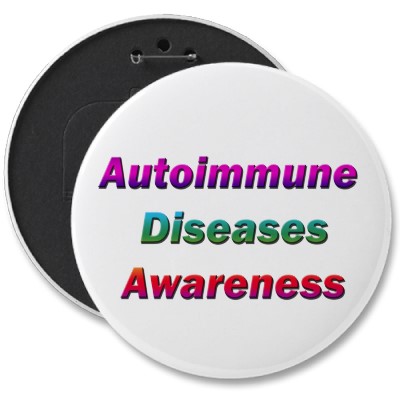Dr Susanna Savukoski – Credit
Severe autoimmune conditions such as Type I diabetes, Addison’s disease, lupus and inflammatory bowel disease are between two to three times more common in women who have been diagnosed with premature ovarian insufficiency (POI) compared to the general population.
The research, published today (Thursday) in Human Reproduction, one of the world’s leading reproductive medicine journals, is the largest to investigate the link between autoimmune conditions and POI, has followed nearly 20,000 women for longer than any other study and is the only one to match women with POI with women of similar ages in the general population for comparison.
The researchers say their findings significantly strengthen the hypothesis that autoimmune processes play a “pivotal role” in the onset of POI.
POI occurs when ovaries no longer work properly and have stopped producing eggs in women younger than 40 years. Periods become irregular and then stop, and some women experience menopause symptoms.
Dr Susanna Savukoski, a gynaecology and obstetrics doctor at Oulu University Hospital and University of Oulu, Finland, led the study. She said: “Estimates of the prevalence of premature ovarian insufficiency of autoimmune origin have ranged from 4% to 50%. Our study has found that autoimmune diseases were two-to-three-fold more common in women diagnosed with POI at the time they were diagnosed, and the incidence of these diseases was two-to-three-fold higher during the first years after being diagnosed with POI, compared to a control group of similarly aged women from the general population. The incidence was higher than in the control group even more than a decade after being diagnosed with POI.”
Dr Savukoski and her colleagues analysed health data from Finland’s comprehensive registries. From the medicine reimbursement registry maintained by the Social Insurance Institution of Finland, they identified 3972 women who had been granted the right to full reimbursement for hormone replacement therapy (HRT) because of POI diagnosis under the age of 40 years between the years 1988 and 2017. Each woman with POI was matched with four women of similar ages, forming a control group of 15708 women. Both groups of women analysed data on severe autoimmune conditions – diseases diagnosed and treated in specialist health centres – between 1970 and 2017.
They found that among women who were diagnosed with POI, 223 women (5.6%) had been diagnosed with at least one autoimmune disorder before the date when reimbursement for HRT because of POI was granted, and 503 women (12.7%) were diagnosed with at least one autoimmune disorder after the date of HRT during the follow-up period.
Women were 2.6 times more likely to have an autoimmune disorder before a POI diagnosis when compared to the control group. Among women with POI, the risk of autoimmune conditions ranged from nearly double for over-active thyroid glands to almost 26 times for polyglandular autoimmune diseases – rare diseases of the hormone (or endocrine) system.
Women without existing autoimmune diseases at the time they were diagnosed with POI were nearly three times as likely to be diagnosed with an autoimmune disease in the following three years, with the risk decreasing but still significantly higher than in the control group during the follow-up period of at least 12 years.
Dr Savukoski said: “These findings reflect the fact that the association between POI and severe autoimmune diseases is strong and that the women with POI have long-term risk for autoimmune conditions. As with POI, severe autoimmune diseases typically manifest with significant symptoms and can have very unfavourable effects on general health, functional ability and quality of life. Luckily, there are good medication options available for many of these conditions.
“It’s important to stress that most women with POI do not develop severe autoimmune conditions, and most women with severe autoimmune diseases do not develop POI. However, medical professionals should be aware of the increased risk, and patients should also be informed about it.
“It should be noted that the risk is not the same for all autoimmune conditions: the association between POI and some autoimmune conditions, such as polyglandular autoimmune syndrome, Addison’s disease and vasculitis, was very strong – a ten to 26-fold risk of having these diseases among women with POI preceding their POI diagnosis compared to the controls – while the risk of having rheumatoid arthritis or hyperthyroidism was about two-fold.
“As POI threatens fertility at a young age, this indicates that women with an increased risk of the condition should be encouraged to try to conceive when they are young. However, some autoimmune diseases can significantly increase the risk of pregnancy complications, especially if therapeutic control is not good enough, and this should be considered in discussions with patients. Unfortunately, so far, there are no treatments available to prevent the development of POI or autoimmune diseases.”
The biological mechanisms underlying the association between POI and autoimmune diseases are not fully understood, especially as the mechanisms may differ depending on the disease.
“Future research should focus on finding detailed mechanisms of how POI develops in different autoimmune conditions. That would enhance the development of preventive treatments against POI of autoimmune origin and other autoimmune conditions as well,” said Dr Savukoski. “We are investigating whether long-term use of HRT can prevent other conditions developing among women with POI.”


